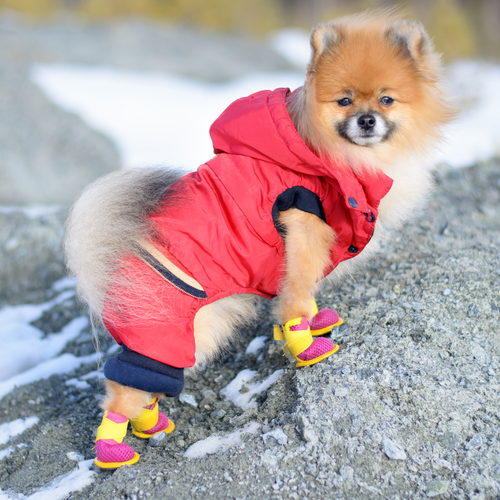
It is that time of year again, and winter is approaching! We want to make sure that you are able to enjoy this cold weather with your furry family members worry-free, so we have compiled the following list of recommendations to help you do just that!
More dogs are lost during the winter than during any other season as cold air and snow cause them to easily lose their scent. Always keep your dog on leash when outside, and ensure that your pets wear up-to-date ID tags at all times. Please also consider having your pet microchipped, if not done already, and ensure that your contact information linked to the microchip is accurate.
Pets should not be left outside for extended periods of time. Remember, if it is too cold for you it is too cold for your pet!
Never leave your pet alone in the car when it is cold outside. Cars may become “refrigerators” in cold weather, leading to hypothermia and even death by freezing.
During the winter, outdoor cats and other small critters sometimes sleep under the hoods or wheel wells of cars. Before starting the engine, bang loudly on the car hood or honk the horn to give potential stowaways a chance to escape.
Avoid shaving your pet down to the skin in winter as longer coats provide greater warmth. Shorter-haired pets may benefit from wearing winter coats or sweaters that provide coverage from neck to tail base and over the belly.

An acute onset of limping while outside may be due to formation of ice balls between your pet’s paw pads. If your pet has a lot of hair between his toes, consider keeping it clipped short to help prevent these ice balls from forming. Another option is to have your pet wear booties when outside.
Thoroughly wipe down your pet’s paws, legs, and belly with a warm washcloth or other pet-friendly wipe after walks outside. Not only can rock salts, de-icers, antifreeze, and other chemicals cause your pet’s paws to become chapped and irritated, but your pet may ingest these harmful substances when cleaning himself leading to stomach upset and potentially toxicity.
Don’t allow your pet to eat snow as this may cause stomach upset or hypothermia. In addition, snow may harbor foreign objects or harmful chemicals that may cause severe injury or toxicity to your pet.
Antifreeze ingestion in even small amounts can be lethal to dogs and cats. Any spills should be cleaned thoroughly and promptly. You may also want to consider using products that contain propylene glycol rather than ethylene glycol.
Thank you for looking out for the best interest of your pets, and we hope you have a fun and safe winter season!
